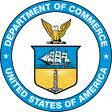United States Department of Commerce

United States Department of Commerce: Staff Publications
Date of this Version
2012
Citation
Developmental and Comparative Immunology 36 (2012) 629–637; doi:10.1016/j.dci.2011.10.011
Abstract
Conservation biologists face many challenges in assessing health, immune status and infectious diseases in protected species. These challenges include unpredictable sample populations, diverse genetic and environmental backgrounds of the animals, as well as the practical, legal and ethical issues involved in experimentation. The use of whole genome scale transcriptomics with animal samples obtained in a minimally invasive manner is an approach that shows promise for health assessment. In this study we assessed the utility of a microarray to identify changes in gene expression predictive of health status by interrogating blood samples from California sea lions (Zalophus californianus) in rehabilitation. A custom microarray was developed from the commercially available dog microarray (Canis familiaris) by selecting probes that demonstrated reliable cross-hybridization with RNA in sea lion blood. This custom microarray was used for the analysis of RNA from 73 sea lion blood samples, from animals with a broad spectrum of health changes. Both traditional classifying techniques and newer artificial neural network approaches correctly classified sea lions with respect to health status, primarily distinguishing between leptospirosis infection and domoic acid exposure. Real time PCR validation for a small set of genes, followed by sequencing, showed good correlation with array results and high identity (96–98%) between the dog and sea lion sequences. This approach to health status classification shows promise for disease identification in a clinical setting, and assessment of health status of wildlife.

